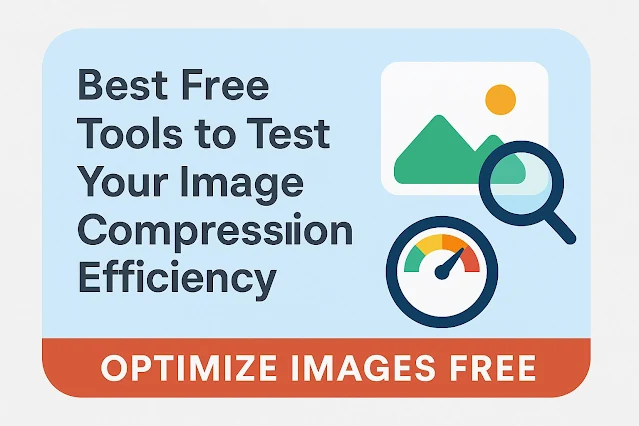Image compression is essential for faster websites, better SEO, and improved user experience. But how can you know if your compression method is working efficiently? In this guide, we’ll explore free online tools that help you test, analyze, and optimize your images with ease.

Why Test Image Compression?
Compressing images helps reduce page load time, but excessive compression can lead to blurry visuals. Testing allows you to find the sweet spot between size and quality. The right balance boosts SEO, reduces bounce rates, and improves Core Web Vitals scores.
Top Free Image Compression Test Tools
1. Squoosh by Google
Squoosh is a web-based app that allows you to visually compare the original image and the compressed version. You can experiment with compression levels and file formats like WebP, AVIF, JPG, and PNG.
- Live side-by-side preview
- Instant file size display
- Resize and compress in one tool
2. ProCompressor
ProCompressor offers both compression and basic image resizing with support for JPG, PNG, and WebP. You can see the size difference and quality change after processing.
- Drag & drop interface
- File size comparison shown
- 100% free and mobile-friendly
3. GTmetrix
Though mainly a website speed testing tool, GTmetrix flags unoptimized images and gives you suggestions for better compression. It even shows potential savings in KBs.
- Identify unoptimized media
- See compression savings
- Get Core Web Vitals scores
4. TinyPNG Analyzer
TinyPNG is known for its smart lossy compression. Upload a PNG or JPG and it shows the original vs compressed size instantly. Good for batch image testing too.
- Simple drag and drop
- Up to 20 images per batch
- Transparency support for PNGs
Bonus Tip: Use Multiple Tools
Each tool uses different compression algorithms. You can test the same image on multiple platforms to compare quality and file size. Combine tools for best results.
Optimize Images Before Uploading
It’s always better to compress images before adding them to your website. Uploading large files directly into WordPress or Blogger can slow down your site unnecessarily. Use online tools to keep image size under control while maintaining quality.
Conclusion
If you're serious about performance, testing image compression efficiency is a must. These free tools help you find the perfect balance between speed and quality. Start testing today and see how optimized images can transform your website's performance and ranking.



0 Comments